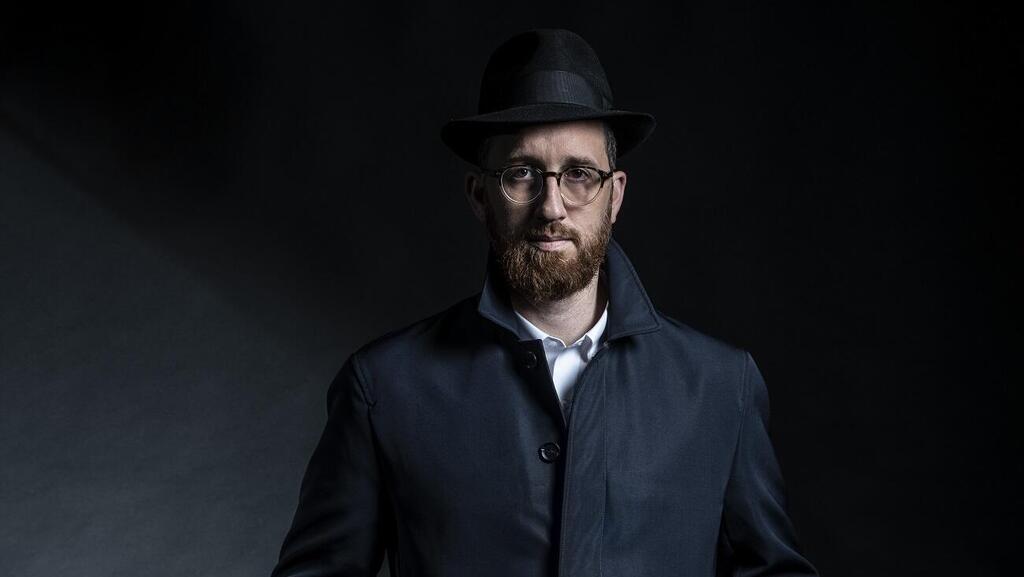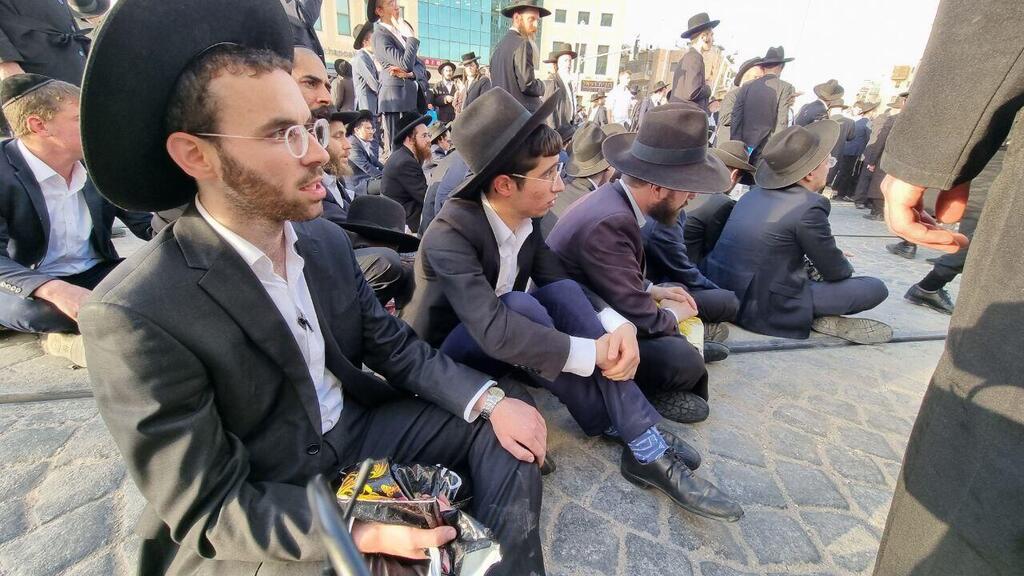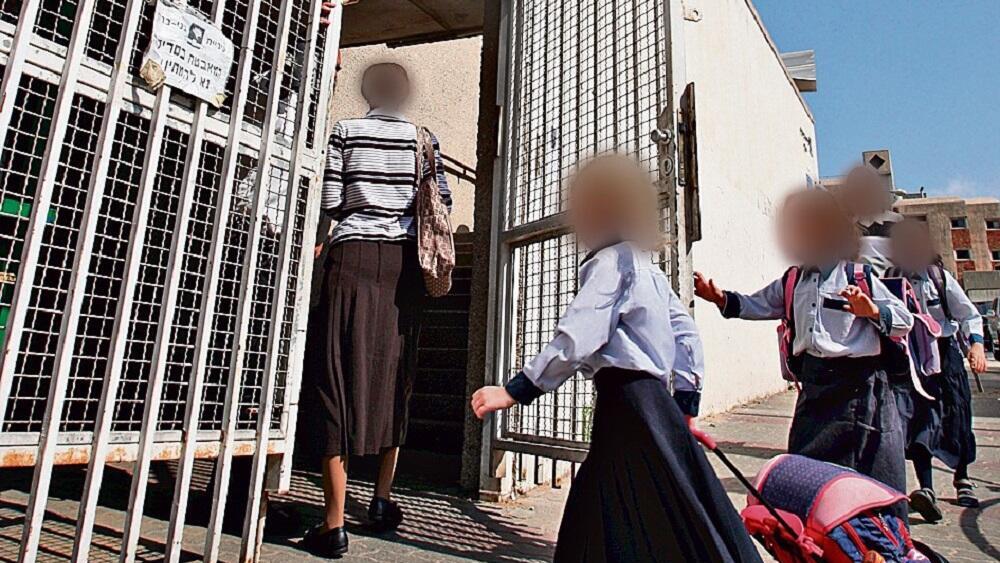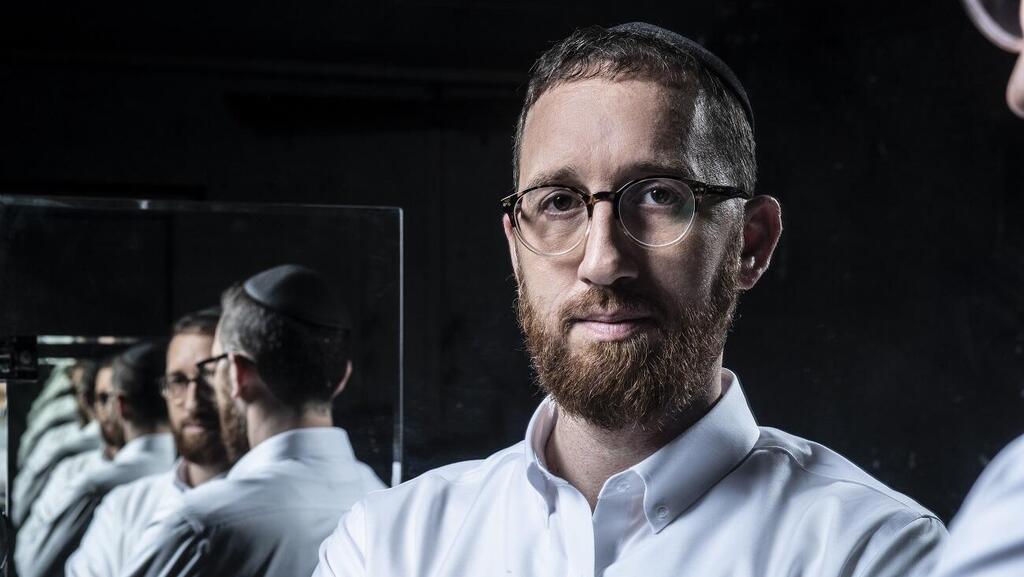The most frightening sentence in Yitzik Crombie's new book is: “When the Haredi will become the majority.” Not "if," not "maybe," not "sometime in the future" - straight to the point and without any reservations.
And they will become a majority, demographics prove it: On average, an ultra-Orthodox woman gives birth to 6.6 children - twice as many as a non-Orthodox Jewish woman.
Crombie in his book titled "When the ultra-Orthodox become the majority," expresses his concerns over the future of Israel, when a large portion of its population lives on government handouts and is not a productive and contributing sector of the country.
He is a 39-year-old ultra-Orthodox from the Chabad sect who studied in a Yeshiva and was certified as a Rabbi but has become concerned enough to make us all aware of the future he sees, especially the ultra-Orthodox among us.
There are already some 1.2 million ultra-Orthodox Jews in Israel, and a quarter of school kids are ultra-Orthodox. If that trend continues, by 2065, the Haredi population will make up 40% of the entire population in Israel.
Most secular Israelis are already worried that Israel would become a Halachik state. The odds are in favor of that and with the government agreeing to budget schools that refuse to teach core subjects, allow an exemption from mandatory military service for Haredi men, give them tax exemptions, and allocate taxpayer's money to Ultra-Orthodox parties and the needs of their constituents, there is no question that a change is coming.
"It will happen in a few decades," Crombie says. "just look at the labor market: What will it look like in 20 years? We already know the answer, because the children who will be adults then have already been born. Take a look at the first graders today, and you will understand what the job market will look like. And by 2064, I believe, most of the children between the ages of zero to four will be ultra-Orthodox."
And what does that mean?
“Look at Jerusalem and see what this city looks like with such a high percentage of ultra-Orthodox: It's crashing despite the fact that it gets government funding of about a billion shekels a year – and with the new government it will probably get even more – and what will we do when the whole country is in the same situation?”
Jerusalem is considered one of the poorest cities in Israel because such a large percentage of its population does not work or pay municipal taxes and is poor.
“20 years from now, Israel's Gross Domestic Product (GDP) will be as low as Uganda's," he says. "If you will tell that to a secular Israeli, he will say that he is not prepared to be in a 3rd world country. Seculars will tell the Haredis that they can choose to be religious or not, acquire education or not, but there will be no more funding. The ultra-Orthodox must work, enlist in the IDF, and assimilate into Israeli society.
"But if you tell the man on the street in the ultra-Orthodox city of Bnei Brak street that in 20 years the economy will collapse, and we will be poor, he will say: 'So what? I'm already poor, and I'm part of a community, I don't see myself as an individual, but as a collective, and our collective lives. We might be all poor, but we are happy.'"
"This is the paradox that exists in the Haredi society - and therefore I sound the alarm in my book which is not only for the secular people but also for the Haredi public."
Crombie runs innovation centers, employment projects, and high-tech platforms for the ultra-Orthodox, in an ongoing attempt to save that sector from itself and Israel from a future of poverty.
He wanted to join the high-tech sector and started as a salesman for a computer store. “I started working in sales in Jerusalem, and from there I went to study IT systems and worked in all kinds of companies, it was very good for several years and I enjoyed it.”
Do you believe Israelis are prepared for a Halachik state?
“Those who can, the top social echelons will leave the country because they will be able to. This includes professors at universities, doctors in hospitals, and senior executives of high-tech companies. And at the end of the day, they are those who carry this country on their backs and help it develop.
The people who will stay in Israel will get used to the new reality - people get used to everything, after all, people got used to communism. But will it last? No, it won't. The real question is who will collapse first: Will it be the Haredi society that will collapse into itself, or will it survive the crisis and the state will collapse first? Either way, one of them will fall sooner or later."
What do you mean, the society would collapse into itself?
"Economically, socially, politically. The narrative in the ultra-Orthodox is, ‘Don’t interfere in our affairs. We will manage on our own. Just let us be.’"
"So you say: All right, that can work as long as the Haredis are a small community. But when it grows in numbers, at some point it becomes unsustainable. Just take a look at the education – what Haredi schools look like. The fact that children don't die every day when their classrooms are in trailers with no regard to safety. a miracle."
You also wrote that the state has turned its back on those students.
"It's mutual. The state says: If I will supervise the schools, I will do so in all aspects of Haredi education, including how they teach core subjects: English, math, and science as well as accepted social values and norms in Israel.
But the Haredi leadership objects and tells the state to stay out of their affairs. When they claim that secular Israelis should learn the values and norms of the religious communities, the secular leaders object. It is a mirror image.
So what do you suggest – state oversight without a say over the curriculum?
“There is something that has to happen because, by the state leaving the education of Haredi children to their own leaders, we got to where we are today.
We have to take small steps toward each other. Let the Education Ministry supervise the schools enough to ensure that there are no pedophiles among the teachers. Or it could provide proper safe facilities. that's how you build trust.
But all the government can do is deny the Haredi schools funding. Meanwhile, the ultra-Orthodox communities are paranoid about state intervention. that is wrong. the state can sometimes be helpful.
“In the end, if it is important for us to have a Jewish state here, the ultra-Orthodox community is keeping the idea alive. But it is hard for Israelis not to be alienated in reaction to the political behavior of Haredi leadership.
More and more secular Israelis turn away from religious marriages conducted by the Rabbinate, but they still circumcise their sons. Why? because they are not forced to. If you make circumcision into law, that too will be forgone.
In 2050, is Israel a religious country?
"No, it won't be. It will be a country with many religious people. I hope that we will be able to find ways to keep Shabbat a day of rest.”
More than now?
“It won’t look like it does now. I think there will be a lot more people who will observe Shabbat, but that doesn’t contradict the fact that other people will be able to observe Shabbat in their own way. In the end, we’ll both have to change a little bit to live together.”






